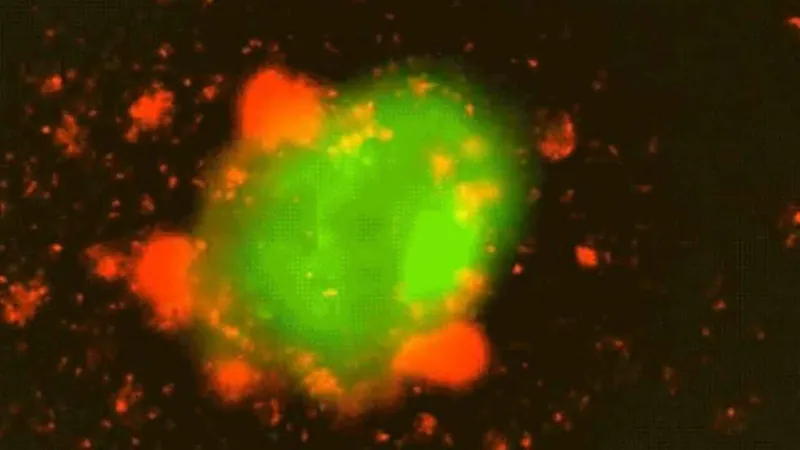
Revolutionary Ultrasound-Activated CAR T-Cell Therapy Could Transform Cancer Treatment
2025-04-04
Author: Daniel
Introduction
In a groundbreaking advancement, U.S. researchers have unveiled a pioneering type of immune cell, designed to revolutionize cancer treatment. These ‘smart’ cells, known as the "EchoBack CAR T-cell," can sense and eradicate cancerous cells for extended periods when activated by ultrasound.
Development and Research Team
Developed by a team of biomedical engineers at the University of Southern California (USC), this innovative therapy has the potential to significantly improve the efficacy of cancer immunotherapy. A study detailing these findings has been published in the prestigious scientific journal *Cell*.
Enhanced Efficacy
The EchoBack CAR T-cells have demonstrated an impressive ability to attack tumor cells for five times longer than conventional CAR T-cells, making them an essential tool in the ongoing battle against cancer. What sets this technology apart is its ability to be remotely controlled, allowing healthcare providers to target tumors more precisely using focused ultrasound. This method not only aims to enhance the effectiveness of treatments but also safeguards healthy tissues surrounding the tumor.
Innovative Mechanism of Action
The challenge of treating tumors traditionally deemed unsuitable for immunotherapy could be on the verge of being solved, as highlighted by the research team. Lead author Longwei Liu, an Assistant Professor at USC’s Viterbi School of Engineering, elaborated on the significant leap forward from first-generation CAR T-cells. Typically, traditional CAR T-cells can only attack cancer cells for about 24 hours before losing effectiveness. In contrast, the EchoBack CAR T-cells remain active and lethal against cancer cells for a minimum of five days, significantly reducing the frequency of patient hospital visits from daily to potentially bi-weekly or even less.
Mechanism of Activation
The mechanism behind the EchoBack CAR T-cells’ activation is ingenious; they respond to a brief 10-minute pulse of ultrasound that effectively acts as a switch. This activation allows the cells to locate and detect cancer cells in their vicinity, showcasing their enhanced operational capabilities.
Laboratory Testing and Results
In rigorous laboratory experiments involving mouse models, the research team tested these CAR T-cells against various types of tumors, including prostate cancer and glioblastoma. The results were promising. Not only did the ultrasound-activated CAR T-cells outperform standard CAR T-cells with greater efficacy, but they also showed reduced fatigue and maintained a higher functioning state when repeatedly exposed to tumor cells.

 Brasil (PT)
Brasil (PT)
 Canada (EN)
Canada (EN)
 Chile (ES)
Chile (ES)
 Česko (CS)
Česko (CS)
 대한민국 (KO)
대한민국 (KO)
 España (ES)
España (ES)
 France (FR)
France (FR)
 Hong Kong (EN)
Hong Kong (EN)
 Italia (IT)
Italia (IT)
 日本 (JA)
日本 (JA)
 Magyarország (HU)
Magyarország (HU)
 Norge (NO)
Norge (NO)
 Polska (PL)
Polska (PL)
 Schweiz (DE)
Schweiz (DE)
 Singapore (EN)
Singapore (EN)
 Sverige (SV)
Sverige (SV)
 Suomi (FI)
Suomi (FI)
 Türkiye (TR)
Türkiye (TR)
 الإمارات العربية المتحدة (AR)
الإمارات العربية المتحدة (AR)